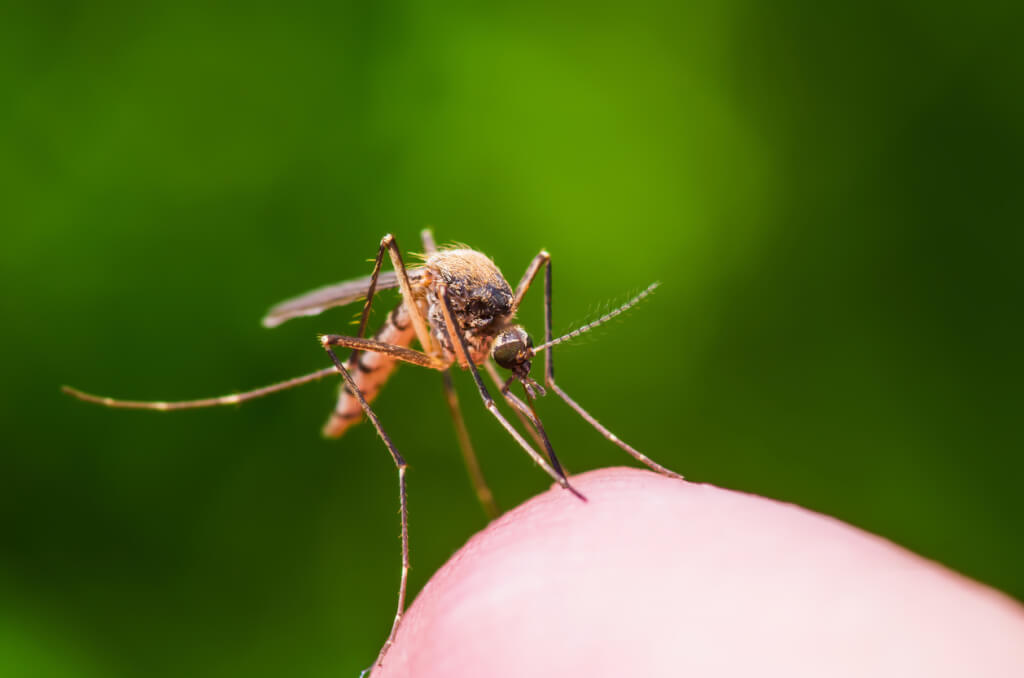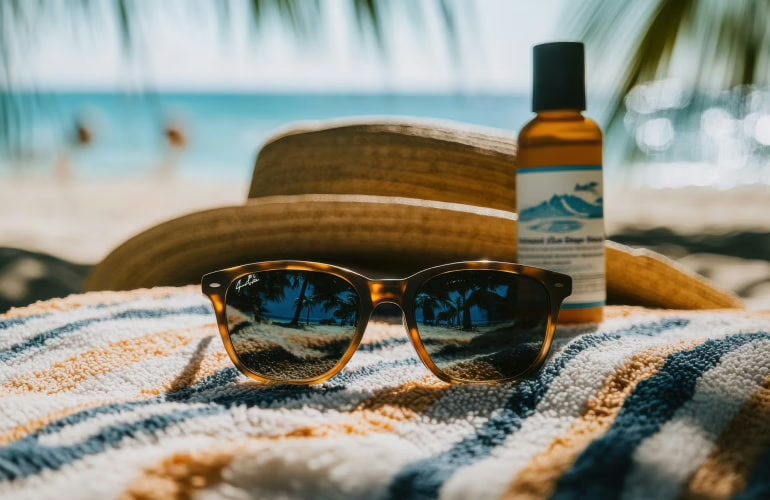Advertising Disclosure
The best bug repellents you can buy in 2021

You can break repellents down into four categories. They are conventional, biopesticide, plant-based and for clothing. Each category has their own benefits and faults, which you end up choosing will depend on your specific needs and restrictions. There are a variety of different species of mosquitoes and ticks. Depending on where you live or plan on traveling, your insect repellent needs may differ. Be sure to research the species of insects you are likely to encounter, and which repellents will work best for you. Let’s talk about the best insect repellents available for every need.
Conventional repellents
All repellents provide some level of protection. But conventional repellents such as deet and picaridin are proven most effective. They should be your first choice in areas with serious insect-borne illnesses like Lyme disease and West Nile virus.
Deet
Deet one of the most common ingredients found in insect repellents, and has seen wide use since 1957. It’s the top repellent for most for it’s long-lasting protection against a variety of insects. Many other repellents are effective against mosquitos or ticks alone.
Be sure to keep an eye out for products that advertise products that contain more than 50% deet. This is because its effectiveness plateaus at 20-30% and has been found to be toxic in higher concentrations. Those spending long hours outdoors choose deet due to its effectiveness against a wide range of insects. Also, certain brands provide a whopping six to 12 hours of protection.
While we know that deet is effective, people’s shift to new products is not unwarranted. Deet often leaves skin sticky, and it’s strong enough to corrode plastics and ruin fabrics. With that in mind, those with sensitive skin should steer clear of products that include deet. For them, it can cause severe irritation with prolonged exposure.
Top deet repellent: 3M Ultrathon Insect Repellent
- 34% deet concentration ensures long-lasting coverage without risking skin irritation.
- 12 hours of protection, longer than other leading deet repellents.
- Aerosol free. Lotion repellent is an alternative that avoids the toxic inhalation and environmental impact caused by aerosols.
Picaridan
Picaridin (pronounced pih-CARE-a-den) is a newer alternative to deet, providing the same level of effectiveness without the side-effects. Although picaridin has seen use around the world for years, it only started showing up in stores state-side in 2005. Because it’s a more recent addition to the market, there has been less time for safety testing. But so far, studies have been able to prove it’s effectiveness and safety while also being odorless, non-irritating to the skin, and having no adverse effect on plastics.
Compared to its main competitor, deet, picaridin lasts longer, is less toxic, and more effective at keeping insects at a distance. Using repellents with picaridin will make insects less likely to land, while deet prevents them from biting.
Top picaridin repellent: Sawyer’s Repellent Lotion
- Up to 14 hours of protection, competitors usually only offer up to 12.
Biopesticide repellents
Made from naturally derived botanical ingredients, biopesticide repellents provide an alternative with decent protection, though are less effective than conventional repellents. Unlike deet and picaridin, biopesticide repellents affect mosquitos and ticks for the most part, instead of a wider-range of insects. Be sure to research the insects native to where you plan on using your repellent to ensure peak protection.
Since biopesticide repellents still provide protection from mosquitoes and ticks, they are a preferred alternative for those in areas without serious insect-borne illness concerns.
Oil of lemon eucalyptus
Oil of lemon eucalyptus is the most effective botanical ingredient, with results comparable to deet, long it doesn’t last quite as long. Like other biopesticide repellents, oil of lemon eucalyptus only protects against mosquitoes and ticks, providing 6 hour coverage.
But since botanicals don’t need registration with the EPA, there is no guarantee that the products will work as advertised, though recent studies have proven its efficacy is comparable to repellents that include deet or picaridin. Avoid using oil of lemon eucalyptus for children 3 years old or younger as there has not been enough testing with that age group. In some cases oil of lemon eucalyptus can cause lung irritation and allergic reactions, though these side-effects are rare.
Top oil of lemon eucalyptus repellent: REPEL Lemon Eucalyptus
- More effective in some studies compared to deet.
- Up to 6 hours of protection, which is less than conventional repellents, but long-term compared to plant-based repellents.
IR3535
IR3535 provides longer protection but has more adverse effects than other biopesticide repellents. Although it’s use is new to the United States, it has been widely used in Europe for years and has a good safety profile. The main concern with IR3535 is its potential to irritate eyes and harm some plastics and fabrics.
Many IR3535 repellent products include sunscreen, which can decrease both the sunscreen and the repellent’s efficacy, cancelling each other out. Most IR3535 can only protect up to 8 hours for mosquitos and 6-12 hours for ticks. Products that boast 10-12 hour total coverage may last longer on skin, but studies show them to not be as effective.
Top IR3535 repellent: Coleman SkinSmart
- Gentle on skin
- Up to 8 hours of protection
Plant-based repellents
Plant-based repellents provide an organic alternative and most often include citronella, geranium, basil, garlic, peppermint, soybean oil, and geranoil. While studies have shown their efficacy, their lasting power is where they fall short. Plant-based repellents only provide limited protection for around 2 hours, though some mixtures last up to four. Unlike conventional and biopesticide repellents, plant-based products need frequent reapplication, and so aren’t ideal when planning on spending long hours outdoors.
Like other repellents, some plant-based ingredients cause allergic reactions on the skin. Since botanical and plant-based ingredients are exempt from EPA registration and testing, there is little regulation and quality assurance. While plant-based repellents can ward off some species of mosquitoes, they aren’t proven effective across the board. Be sure to research what species of mosquitoes are in your area and whether the ingredients in plant-based repellents deter them.
For those with sensitive skin, soybean oil, cedar oil, and castor oil all have proven effective without containing potential allergens.
Top plant-based repellent: EcoSmart Insect Repellent
- Organic, plant-based repellent.
- Studies prove it’s as effective as leading oil lemon eucalyptus repellents, with frequent reapplication.
- Made with natural ingredients: Geraniol (1%), Rosemary Oil (0.5%), Cinnamon Oil (0.5%), Lemongrass Oil (0.5%), Other Ingredients (2-Propanol, Isopropyl Myristate, Wintergreen Oil) (97.5%).
Repellents for clothing
Besides topical lotions and aerosols, there is a type of insect repellent designed for use on clothing and other fabrics. Permethrin is the main ingredient in most repellents made for fabrics and is long-lasting. Clothing sprayed with permethrin can retain its efficacy even after two weeks of regular washing. Ideal for field work and wilderness camping, permethrin is for extended outdoor stays in areas where insect-borne illnesses are especially dangerous.
While permethrin provides long-lasting coverage, it is highly toxic to the environment, especially to aquatic life. Permethrin is not recommended for covering clothing such as fishing gear that you submerge in bodies of water, as it can affect the wildlife in that environment.
Top permethrin repellent: Sawyer Permethrin
- Best for ticks and wilderness camping
- Odorless when completely dry, compared to other permethrin repellents that leave a strong chemical smell.





